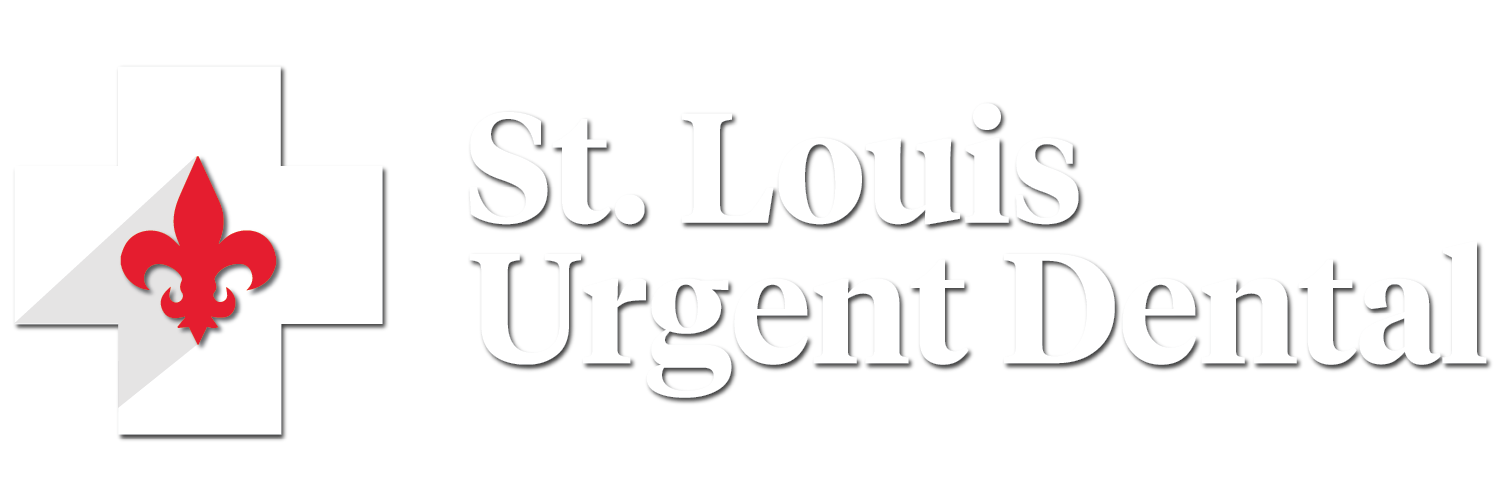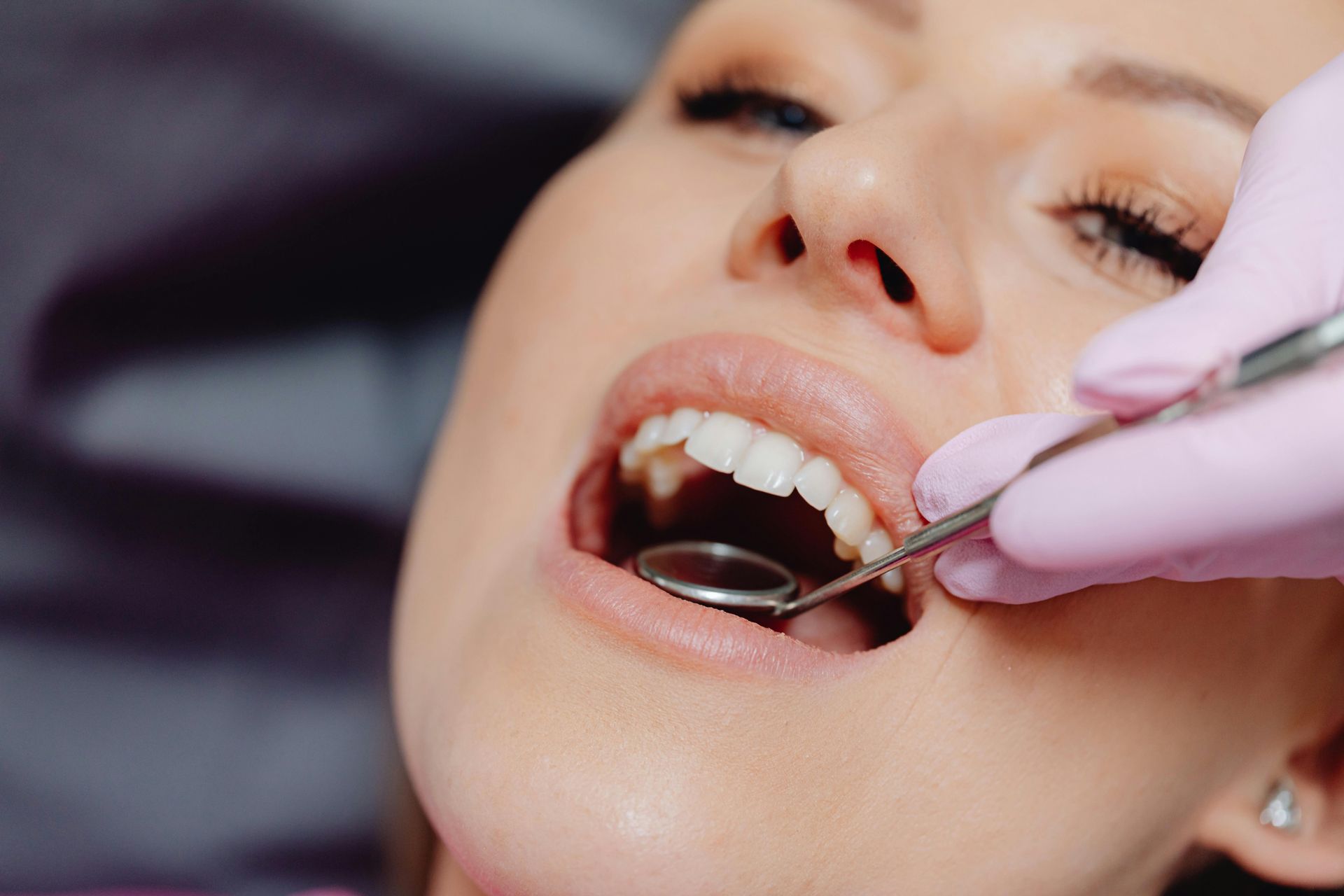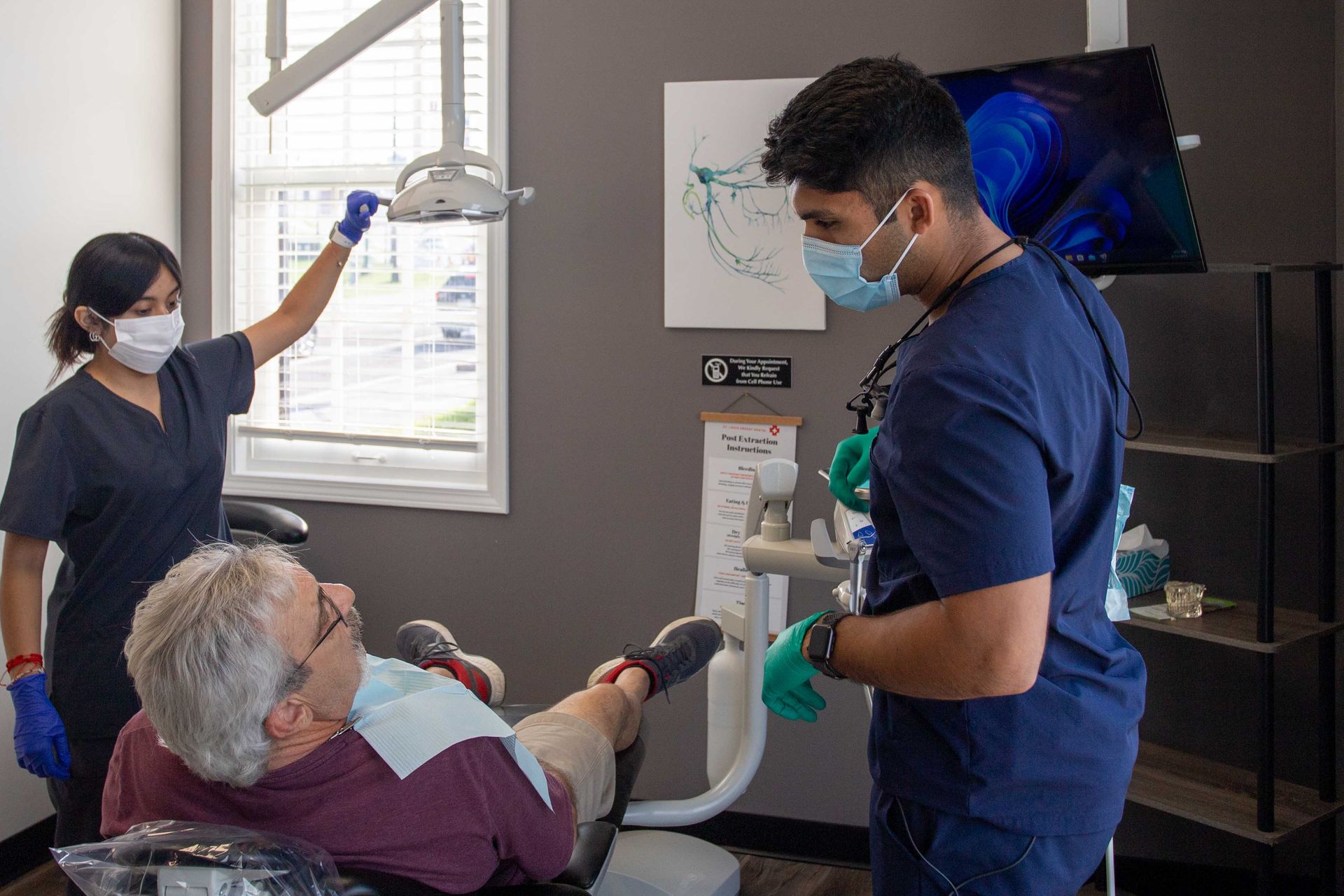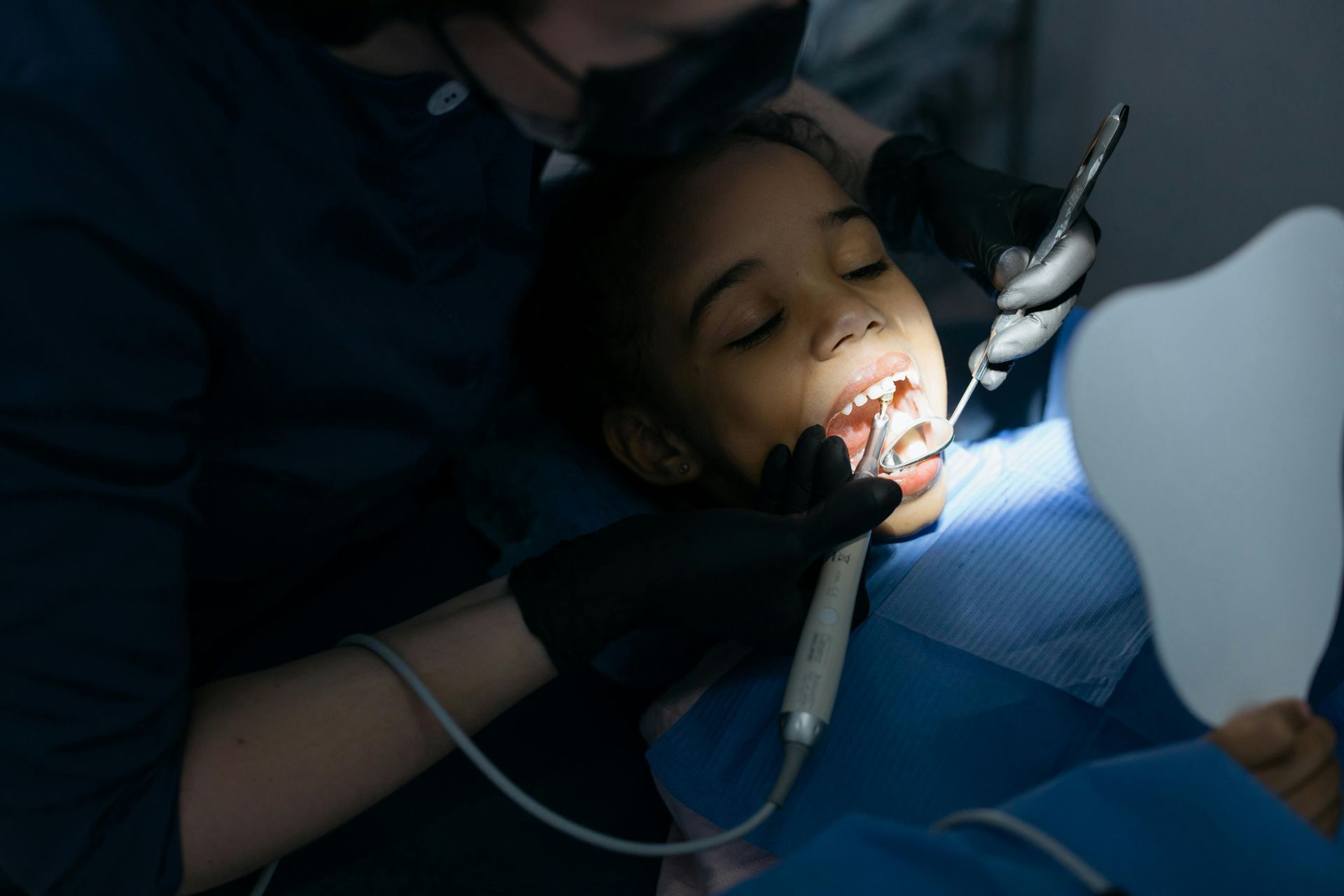New Year, New Teeth: Oral Health Resolutions for 2025
The New Year is here, and it presents new opportunities!
Often, many Americans who make New Year's resolutions include goals for their health. We recommend including oral health in any resolutions – and while you can get back on track and start new routines at any point during the year, the new year is a popular time.
Review some oral health resolutions you and your family can strive for this year.
Brush and Floss Daily
Proper brushing and flossing are the cornerstones of good oral health.
Commit to brushing your teeth twice daily using fluoride toothpaste for at least two minutes. Flossing once daily removes plaque and food particles that your toothbrush can't reach.
For children, make brushing fun using colorful toothbrushes or a timer app, and for seniors, consider floss alternatives like water flossers for easier use.
Visit the Dentist Regularly
Routine dental check-ups are crucial for maintaining healthy teeth and gums.
Adults and children should see their dentist every six months for a cleaning and exam. These visits help identify and address potential issues before they become more serious.
Seniors, in particular, should prioritize these appointments to monitor oral health changes related to aging, such as gum disease or dry mouth.
Stay Hydrated
Drinking water benefits not only overall health but also oral health.
Water helps wash away food particles, neutralize acids in the mouth, and promote saliva production, which is essential for protecting against cavities.
Seniors often experience dry mouth due to medications, making hydration even more critical.

Limit Sugary Foods and Drinks
Sugary snacks and beverages like soda and candy are major contributors to tooth decay.
Reduce your intake of these items and replace them with healthier options like fresh fruits, vegetables, and nuts.
For children, encourage teeth-friendly treats like apples and carrots, which naturally clean teeth as they chew.
Eat a Teeth-Friendly Diet
A balanced diet of calcium, vitamin D, and other essential nutrients supports strong teeth and gums.
Add dairy products, leafy greens, and crunchy fruits and vegetables to your meals. These not only strengthen your teeth but also help maintain overall oral health.
Protect Your Teeth
If you or your children play sports, make wearing a mouthguard a habit to prevent dental injuries.
Ensure seniors with dentures fit correctly and clean them daily to avoid irritation or infections.
Investing in the proper protective measures can save you from painful and costly dental emergencies.
Quit Tobacco and Vaping
Smoking and vaping are harmful to your oral and overall health. These habits increase the risk of gum disease, oral cancer, and bad breath while staining teeth.
Quitting these habits can significantly improve oral health and reduce your risk of serious health issues.
Replace Your Toothbrush Regularly
Everyone should replace their toothbrush or electric toothbrush head every three months or sooner if the bristles become frayed.
A worn-out toothbrush won't clean your teeth effectively and may even harm your gums. Keeping your toothbrush in good condition ensures you're maintaining optimal oral hygiene.

Incorporate Mouthwash
Adding mouthwash to your routine can provide extra protection against bacteria and plaque.
Choose a mouthwash that meets your needs, such as an antiseptic rinse to fight bacteria or a fluoride rinse to strengthen enamel.
Mouthwash is an excellent addition for adults and seniors looking to enhance their oral care routine.
Monitor Changes in Oral Health
Pay attention to any changes in your mouth, such as sensitivity, sores, or shifts in bite alignment.
These could be signs of underlying dental issues. Addressing these concerns promptly with your dentist can prevent them from becoming more serious problems.
Parents should also monitor their children's oral health for signs of cavities or habits like thumb-sucking that may affect dental alignment.
STL Urgent Dental Is Here to Help
Incorporating these resolutions into your daily routine can improve oral health and set a positive example for your family.
Start with small, achievable changes and build on them throughout the year. Remember, a healthy smile boosts your confidence and improves overall health.
Our St. Louis Urgent Dental team is here to help with your urgent, after-hours dental needs!
We are open seven days a week (until 9 p.m. M—F) and treat dental emergencies, including root canals, crowns, socket grafting, extractions, implants, broken teeth, and more.
Please note that we are a "problem-focused" clinic and do not perform regular cleanings.
Our procedure pricing and other details are on our website. Schedule an appointment, and you'll be smiling again in no time!






